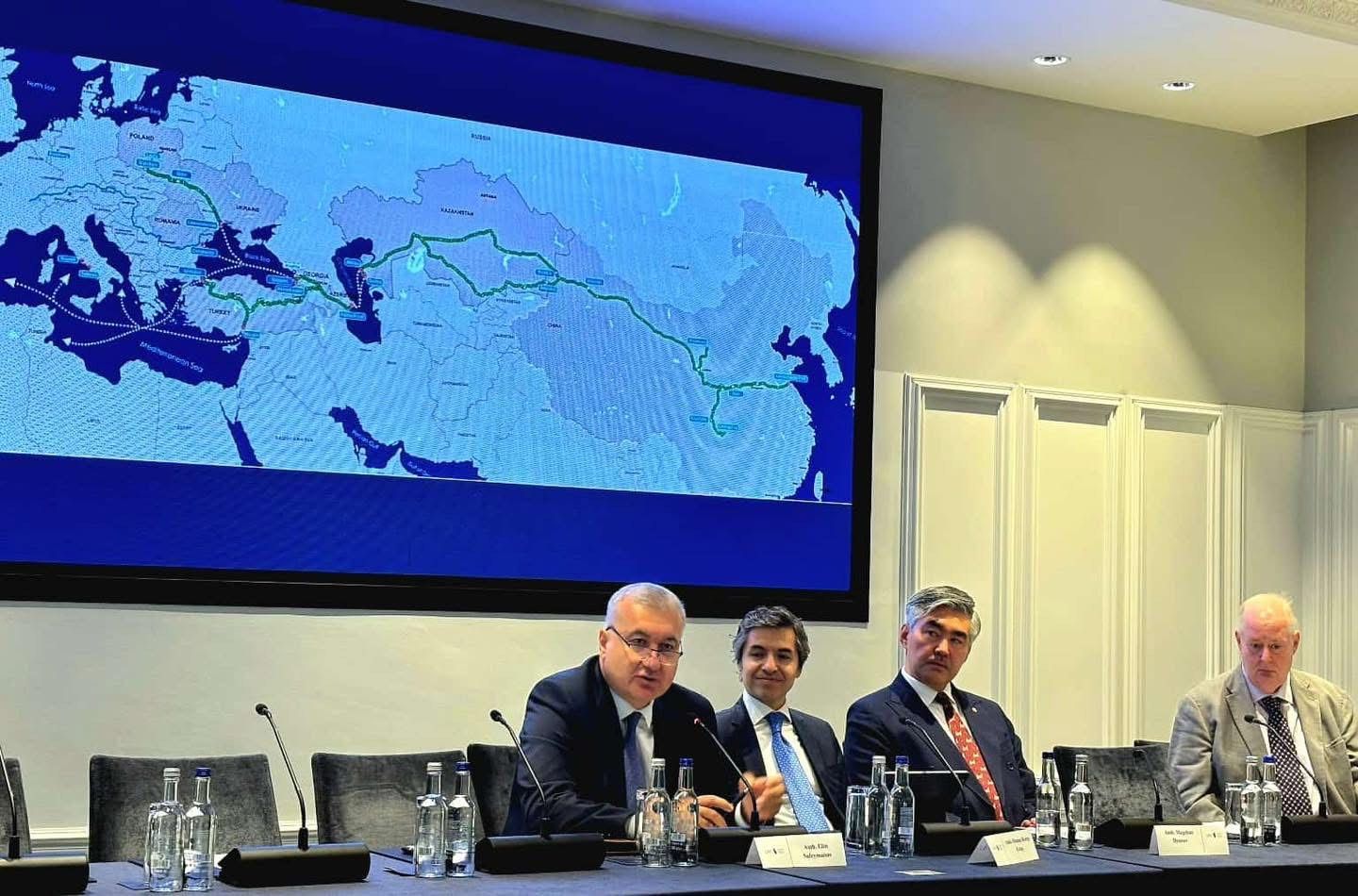At the event titled “Boosting Progress, Advancing Synergy”, held in London, policymakers and experts discussed the growing regional connectivity between Central Asia, the South Caucasus, and Türkiye, Azernews reports.
The forum focused on emerging economic, trade, and strategic opportunities against the backdrop of the development of the Trans-Caspian International Transport Corridor (Middle Corridor).
According to Azerbaijan’s Embassy in the UK, Lord John Alderdice, the UK Trade Envoy to Azerbaijan and Central Asia and a member of the House of Lords, emphasized the UK’s increasing engagement with the region. He stressed the importance of approaching the region through a unified lens and highlighted that cooperation extends beyond trade, reflecting a long-term strategic partnership.
Lord Alderdice noted that British companies are actively involved in major infrastructure projects in Azerbaijan. Notably, UK Export Finance (UKEF) carried out its first aviation finance transaction in Azerbaijan with Silk Way Airlines. British firms are also contributing to the development of clean energy corridors in the country. On education, he highlighted the success of dual-degree programs and vocational training partnerships between UK universities and institutions in Azerbaijan and the broader region. He stated that the UK is prepared to provide not only financial but also technical and institutional support, aiming to enhance both infrastructure and human capital.
Azerbaijan’s Ambassador to the UK, Elin Suleymanov, underlined Azerbaijan’s strategic steps in boosting regional connectivity, which have helped shape a clearer vision for the region’s future development. He referenced recent conflicts, such as the airspace restrictions during the Israel-Iran tensions, which demonstrated Azerbaijan’s pivotal role in offering alternative civil aviation routes. He also cited Azerbaijan’s role as a primary transit country for NATO operations in Afghanistan back in 2001. “These examples show that it is impossible to envision regional integration without Azerbaijan,” the ambassador said, adding that the UK’s appointment of a dedicated trade envoy to the region reflects this reality.
Suleymanov emphasized the need for such cooperation to continue not only in times of crisis but also as a long-term priority. He pointed to the signing of the “Caspian Green Energy Corridor” agreement between Azerbaijan, Kazakhstan, and Uzbekistan during COP29 in Baku as a key example of region-led initiatives. He also highlighted the ongoing visit of Uzbekistan’s President to Azerbaijan, including a symbolic trip to the city of Khankendi, as a sign of growing Turkic cooperation. The ambassador praised the UK’s growing involvement in green transition, energy, and finance projects, thanking the British side for its high-level engagement and support at COP29. He also mentioned British companies' contributions to the reconstruction of liberated territories.
Touching on climate concerns, Suleymanov emphasized the importance of regional cooperation in addressing the shrinking Caspian Sea—a major environmental issue—stating that large-scale collaboration is the only path to effective solutions.
Afgan Nifti, Director of the Caspian Policy Center, stated that trade, transit, energy, and digital connectivity across the Trans-Caspian region are developing rapidly. He noted that the growing number of high-level visits from the EU, France, Germany, Italy, China, and India signals increasing global interest in the region. According to Nifti, Trans-Caspian freight volumes grew by 62% last year. He also announced that 25% of the Trans-Caspian Digital Cable Project has already been completed, reinforcing Central Asia’s independent digital infrastructure. “Digital connectivity is now an integral part of Trans-Caspian cooperation,” he said.
Kazakhstan’s Ambassador to the UK, Magzhan Ilyassov, described the Trans-Caspian route as not just a trade path but a strategic bridge for regional prosperity. Türkiye’s Ambassador to the UK, Osman Koray Ertaş, added that the Middle Corridor—rooted in the legacy of the Silk Road—has become a strategic necessity for resilience and stability in global supply chains, no longer just an alternative.
Expert panels at the event featured presentations from representatives of the European Bank for Reconstruction and Development (EBRD), PASHA Holding, PRISM, Tethys, and other organizations, research centers, and companies.

